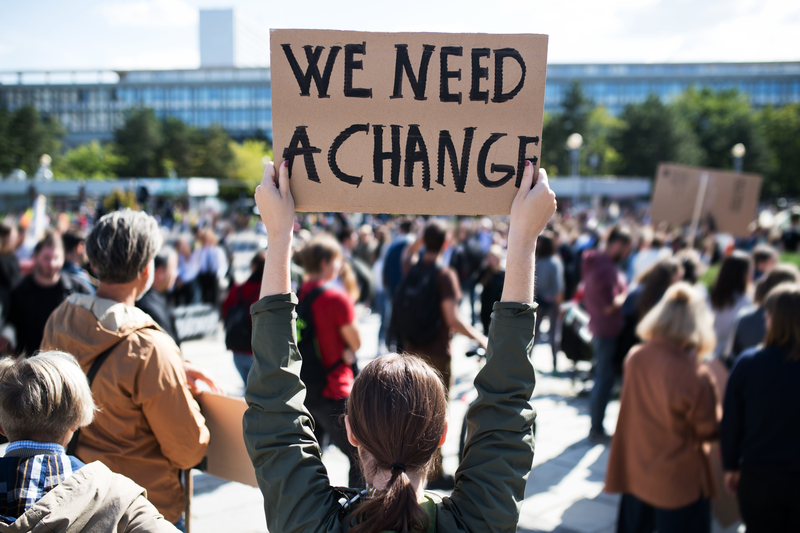Planet Earth’s climate has been stable for the last eleven thousand years. It enabled human civilizations to develop in the impressive ways we see all around us. But now, the climate has become turbulent across the world. Planet Earth has undergone massive climatic changes before. It has been through five ‘great extinctions’. The difference with the climate and ecological crisis the Earth is now facing is that it is ‘anthropogenic’, that is, caused by human activities. The link between burning fossil fuels (oil, coal and gas) and global warming has been well established for more than 50 years, so why does humanity not change its behaviour?
It was only in 2011 in the UK that Climate Psychology Alliance was launched, emerging out of psychotherapists’ work in trying to understand and communicate denial of climate change and increasingly helping people with the anxiety and distress experienced when faced with the seriousness of the climate crisis. On the Climate Psychology Alliance website, this is how their work is described:
Climate Psychology is concerned with the emotions and the social and mental processes that have contributed to the ecological and climate crisis, and our responses and processes of adaptation to it. […] We draw on psychotherapeutic approaches, psychosocial studies, the arts, spiritual and philosophical thought, literature, systems thinking and ecopsychology, all in the service of unpicking our collective and individual responses to the crisis, much of which is unacknowledged and unconscious. Climate Psychology aims to contribute by:
- Building understanding and support for individuals and groups
- Enabling transformation and adaptation
- Helping us to cope with the consequences of the climate and ecological crisis.
That there is a climate crisis is now familiar to us all through news media. Every day we hear ‘climate change’, ‘global warming’ and ‘net zero’. From this we can see that the dominant focus is on carbon emissions, attempts to decarbonise and the link between fossil fuel burning and the heating of the earth’s oceans and land. But we should be referring to ‘the climate and ecological crisis’. This is because many now believe that even if carbon reductions could be kept within 1.5 degrees Celsius (and this is not happening), there is a wider crisis that is upsetting the Earth’s ecosystem balance, only partly created by turbulent weather. It is created by the effects of human activity.

Without the contribution of climate psychology, research and policies tend to be based on the assumption that people are rational and that their behaviours therefore reflect what they know about what is real. Communication policies aimed at encouraging change towards more sustainable behaviour have therefore tended to follow an information-deficit model whereby it has been assumed that given the facts, people will act in pro-environmental ways. Such approaches fail to recognise that humans are complex and conflicted subjects, so that, for example, these information-based approaches can have the effect of sparing us from having to emotionally engage with the existential threat posed by the climate and ecological crisis. Climate psychology sheds light on our collective lack of action through an understanding of our relationship with the natural world and the unconscious defences we use to spare us from the painful feelings evoked (such as anxiety, grief, guilt and despair) when we face the reality of the crisis, especially when our identities, at least in the wealthier countries, are shaped by consumption.
Climate psychology understands that it is erroneous to expect individual behaviour change to be sufficient to turn around climate change. Rather, it points out that it was fossil fuel interests that took the initiative in framing action on climate change as requiring changes in individual behaviour, thus leaving corporate oil giants free to continue business as usual: for example, it was British Petroleum who coined the idea of individuals calculating their ‘carbon footprints’.
For over 300 years, Modern Western civilization has sought to overcome nature (including human nature), so much so that there is no part of the world where the imprint of humankind cannot be found. Hence the recent naming of a new epoch as the Anthropocene. Those of us living in the current period have been shaped by our separation from the rest of nature, learning to treat its natural riches as resources to be exploited for human comfort and wealth. Climate psychology includes an understanding of this history and the challenges involved in reshaping human individuals so as to live differently, within planetary boundaries, in a new historical period defined by the ending of fossil fuel Modernity (Hollway, Hoggett, Robertson and Weintrobe 2022). It recognises the political, cultural and social factors that also govern our thoughts, emotions and behaviours in relation to the natural world and the climate and ecological crisis. It stretches into practical involvement, running climate cafes and support groups, to help support people who bravely face the reality that the future of human civilization is in doubt. It discusses ways that we can live fulfilling lives in the face of this knowledge.




Rate and Review
Rate this article
Review this article
Log into OpenLearn to leave reviews and join in the conversation.
Article reviews